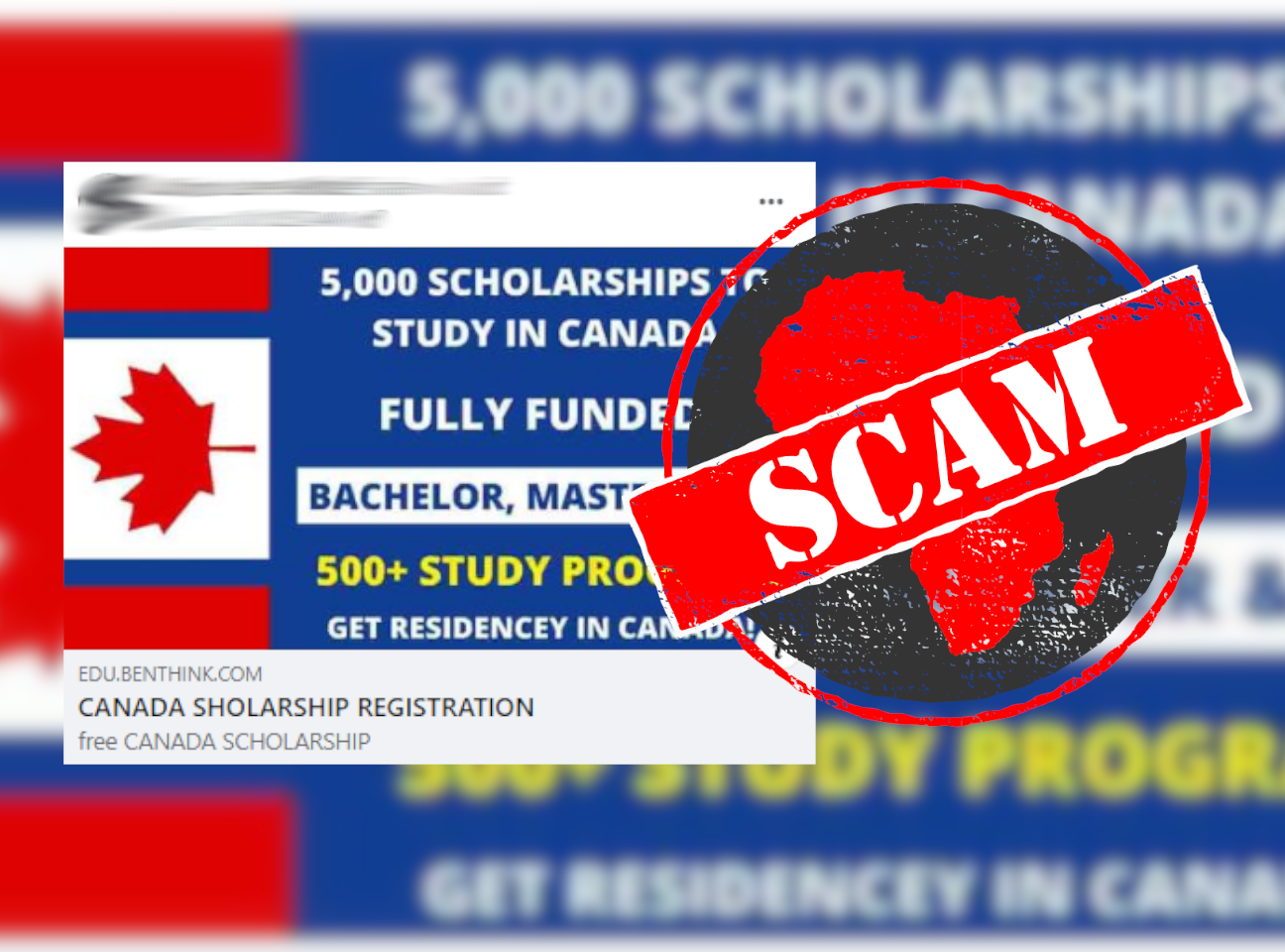A link to a website offering 5,000 “fully funded” scholarships to study “bachelor, master & PhD” in Canada has been posted on a public Facebook page in Rwanda and is circulating on WhatsApp in Kenya. It offers “500+ study programs” and says you can “get residency in Canada”.
The first page of the website reads: “Study in University of Alberta Canada With Course of Your Choice At No Cost through-out The year program. The University of Alberta Scholarship Program Enables International Students to Study in Canada Comfortably and Free.” Users are then told to fill in an application form.
Sounds too good to be true? We checked if the offer is legit.

Signs of scam
The website’s address is edu.benthink.com/Canada. The University of Alberta’s address is www.ualberta.ca.
More than this, the site is riddled with spelling and grammar errors – extremely unlikely if it were representing a university. And the university’s site makes no mention of such a scheme.
We took the risk – not recommended – and scoured the site, following the procedures it laid out for application.
We filled the questions with random letters in place of name, email address, country and area of study. Despite this, the site gave us a message: “You have been approved to study in University of Alberta for free”.
Protect yourself against identity thieves
Like many other scam sites we've checked before, as soon as we had completed the “application” process we were told to click the “invite Friends/Group” button and “share this information with 15 friends or 5 groups on Whatsapp”.
A note after reads: “If you do not complete this step correctly, The VISA FORM page will not load”.
Africa Check has previously debunked similar scholarship scams that ask people to like, share, and comment to increase a post’s reach. They may also be attempts to steal valuable personal information.
To help protect yourself against online fraudsters, read our guide to Facebook scams and how to spot them.
Republish our content for free
For publishers: what to do if your post is rated false
A fact-checker has rated your Facebook or Instagram post as “false”, “altered”, “partly false” or “missing context”. This could have serious consequences. What do you do?
Click on our guide for the steps you should follow.
Publishers guideAfrica Check teams up with Facebook
Africa Check is a partner in Meta's third-party fact-checking programme to help stop the spread of false information on social media.
The content we rate as “false” will be downgraded on Facebook and Instagram. This means fewer people will see it.
You can also help identify false information on Facebook. This guide explains how.


Add new comment